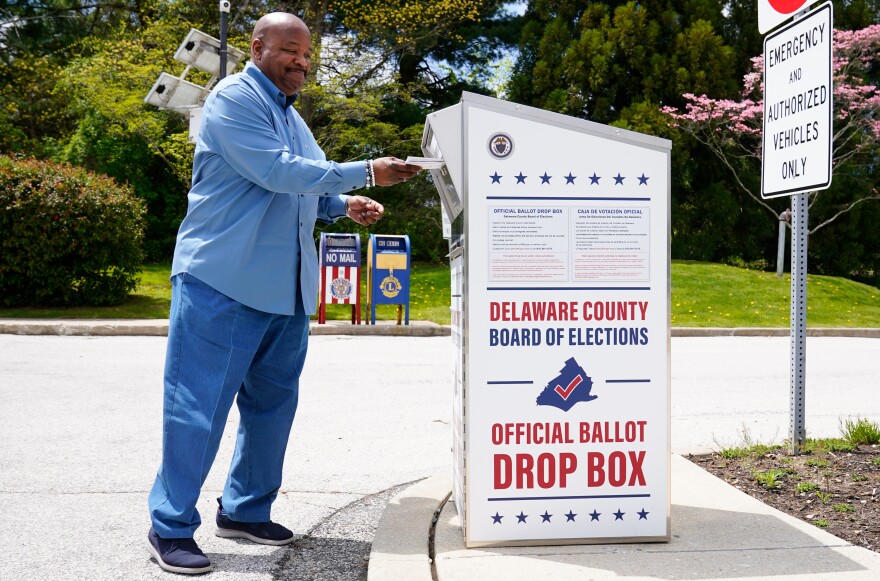Updated August 2, 2022 at 5:17 PM ET
Pennsylvania's mail-in voting law has been upheld by the state's Supreme Court, allowing all voters in the key swing state to cast ballots by mail in November and for other future elections.
In a 5-2 decision released Tuesday, the Democratic-majority court overturned a lower court's ruling from January that found Pennsylvania's Act 77 to be in violation of the state's constitution.
"We find no restriction in our Constitution on the General Assembly's ability to create universal mail-in voting," Justice Christine Donohue wrote in the majority opinion.
The state law, which passed with bipartisan support in 2019, has become a main focal point in a Republican-driven campaign against mail-in voting in Pennsylvania.
The integrity of what was once a largely uncontentious voting option has been subjected to baseless attacks from former President Donald Trump and his allies, leading many GOP lawmakers to make an about-face on their initial support for mail-in voting.
In fact, the lawsuit that was heard by the courts was brought in part by a group of Republicans in the Pennsylvania state House who helped pass Act 77.
The case has been closely followed by many voting rights advocates and election watchers, as it put access to the ballot box for Pennsylvania's more than 8.7 million registered voters at stake.
Last month, the group of Republican legislators in this case filed another lawsuit over Act 77, opening another front in the legal fight over the law's mail-in voting provisions.
In a court filing, they present a different argument for why Act 77 should be struck down, based on a ruling in a separate but related federal lawsuit, which the U.S. Supreme Court has been asked to review.
Copyright 2022 NPR. To see more, visit https://www.npr.org.





